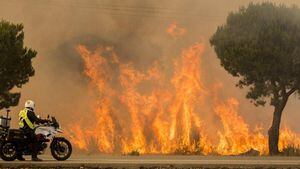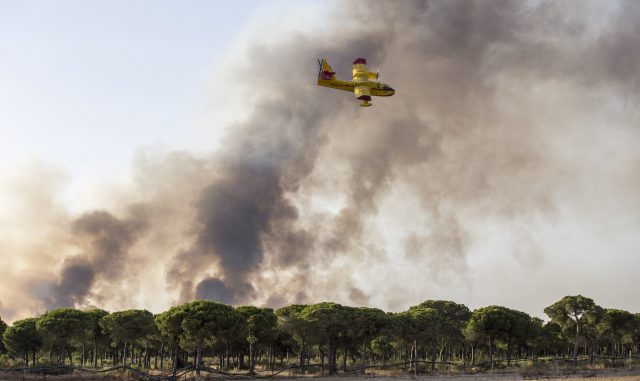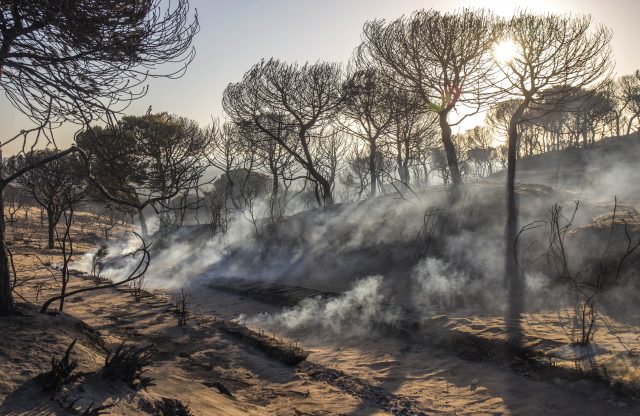Battle resumes to extinguish Spanish forest fire
There were no casualties so far, but a number of important species are threatened by the blaze.

Spanish authorities are hopeful that dropping temperatures and favourable winds will help firefighters battling to extinguish a major forest fire on the fringes of one of Europe’s most celebrated conservation wetlands.
“Today is a key day,” Andalusia regional president Susan Diaz told reporters.
“Before dawn, (the fire) advanced. There were moments of much difficulty and it was out of control. Today all the news is positive.”
Andalusia’s forest-fire prevention department said some 550 firefighters had managed to encircle and confine two of the three blazes raging near the Donana national park, but that a third one closer to the park was still out of control, mainly due to blustery winds.
Spokesman Ignacio Fernandez said the fire “has not affected the park at all” but had damaged protected areas nearby.
Interior Minister Juan Ignacio Zoido said there were no casualties.

There were no immediate details on how much land had been scorched so far.
Ms Diaz said they were not ruling out the possibility that the fire was started deliberately on Saturday.
The blaze comes a week after wildfires killed 64 people in neighbouring Portugal, which like Spain is suffering a severe lack of rain and soaring temperatures.
Donana Nature Reserve is a Unesco World Heritage site since 1994.
It protects over 107,000 hectares (264,403 acres) considered of extreme ecological value for their mix of ecosystems including wetlands, dunes and woods.
It is a key stop for migratory birds and home to a variety of animals, including Iberian lynxes, one of the world’s most endangered feline species.

Park authorities said one of the lynxes, a female called Homer, died as a consequence of the stress after workers tried to get her and other adults and cubs out of a breeding centre close to Donana.
Enormous efforts have been made to recover the Iberian lynx population in recent years.
There are now 483 cats in the wild or in breeding centres, most in southern Spain.





